- Face
- Body + Hand
- Hair
- Candles
- Parfum
- Subscriptions
- Nutrition
- Gifts
- Treatments
- Visit
- Academy
- Journal
![]()
Shell + Product Exploration
Shell + Product Exploration
We have been looking at making a deodorant for a number of years now. Being a product used by most on a daily basis, we knew that if we did it, we had to do it properly. In the past year, we have seen a number of ‘successful’ refillable deodorants come to market, all of which are made of virgin plastics, and made thousands of miles away-. We knew that we needed to make a proper product, one built to last, with minimal breakable components, one that was fully recyclable without losing any material value, whilst also doing as little environmental damage as possible.
Locality is not only important for logistics but it is a huge sustainable factor. Local production has many benefits, such as; better quality control, less waste, a smaller carbon footprint; and it helps boost the local economy. The Shell was designed and made in Margate, while all of the ingredients for our Dry Wave + Pleurotus 0.4% stick came from within 2km of our making space. Through liaising with makers and thinkers, we were able to create a product that uses the resources found locally, and that champions the area.
FORMULATION
Creating a natural deodorant was important to us. Many deodorants use harsh chemicals and aluminium salts, which can have adverse effects on health. After years of using these types of deodorants it may take some time for your body to adjust to a natural alternative, as aluminium can clog pores. By doing this it stops an important bodily function. Sweating releases toxins, and it can also help promote a strong immune system. So instead of adding aluminium to our deodorant, we made the Shell from it instead.
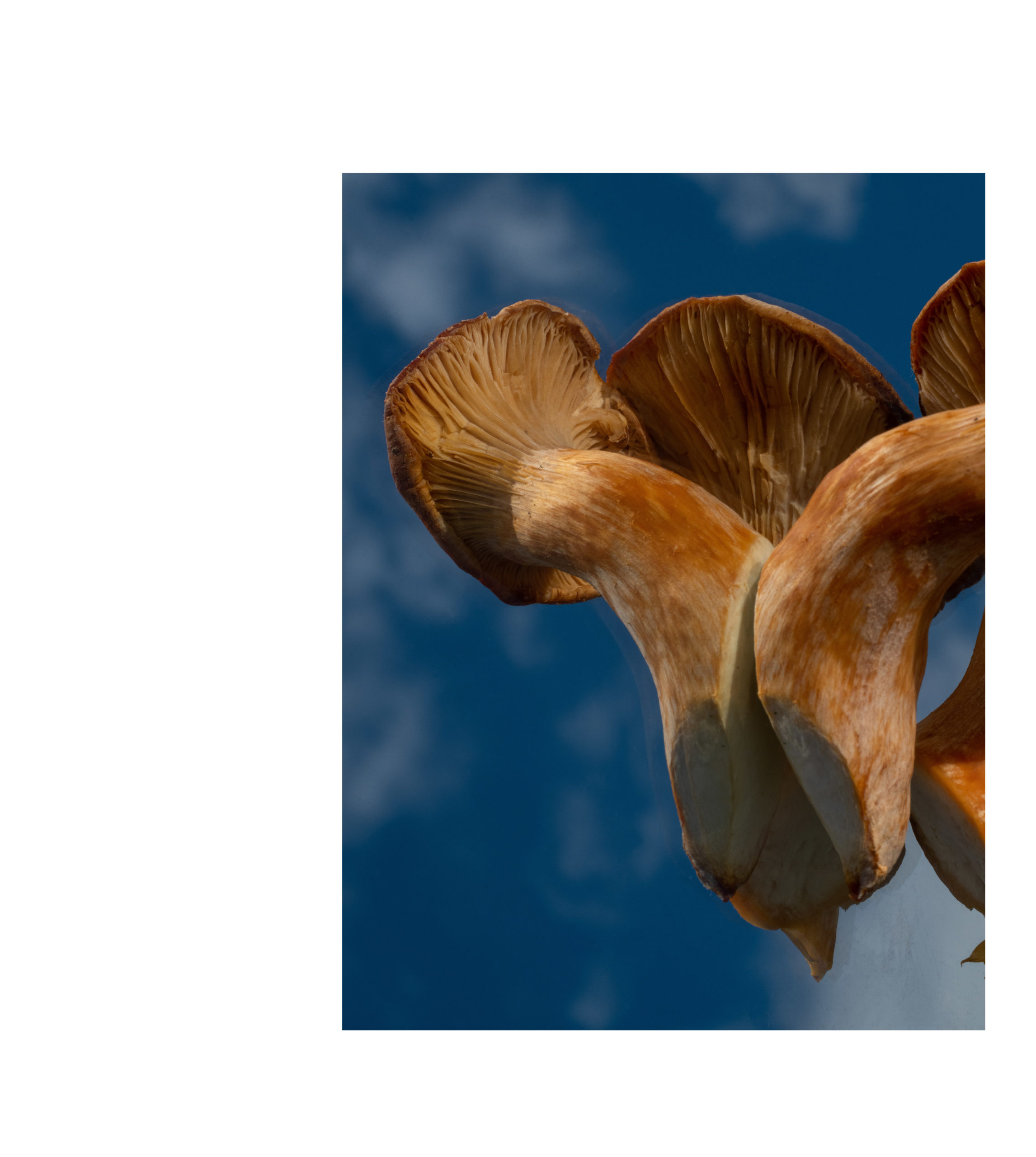
Dry Wave + Pleurotus 0.4% is our first product to utilise our newly developed Pleurotus ostreatus extract from our shop grown oyster mushrooms. Our idea was to emulate the symbiotic partnership of lichen in our deodorant, by using the antimicrobial properties of Pleurotus ostreatus (oyster mushrooms), and the antioxidant properties of our Laminaria digitata (kelp). We then added a lemon peel oil, as this acts as a deodoriser.
![]()
THE DESIGN
The Shell is a mono-material casing, made from only aluminium. Unlike many other deodorant stick packaging it contains no plastic. To create a usable case that had a pushing action for ease of use, we went back to basics. Instead of having an overly complex twisting internal system (which is only possible if made out of plastic) we looked at how our hands could be the pushing force. This led us to putting an internal cup inside which holds the stick, and can be easily pushed from the bottom of the outer casing. As this is fitted tightly in place, tension is created which keeps the stick from pushing down with light force. This resulted in only a 3 part product, which we believe to be the first of its kind.
![]()
MANUFACTURING
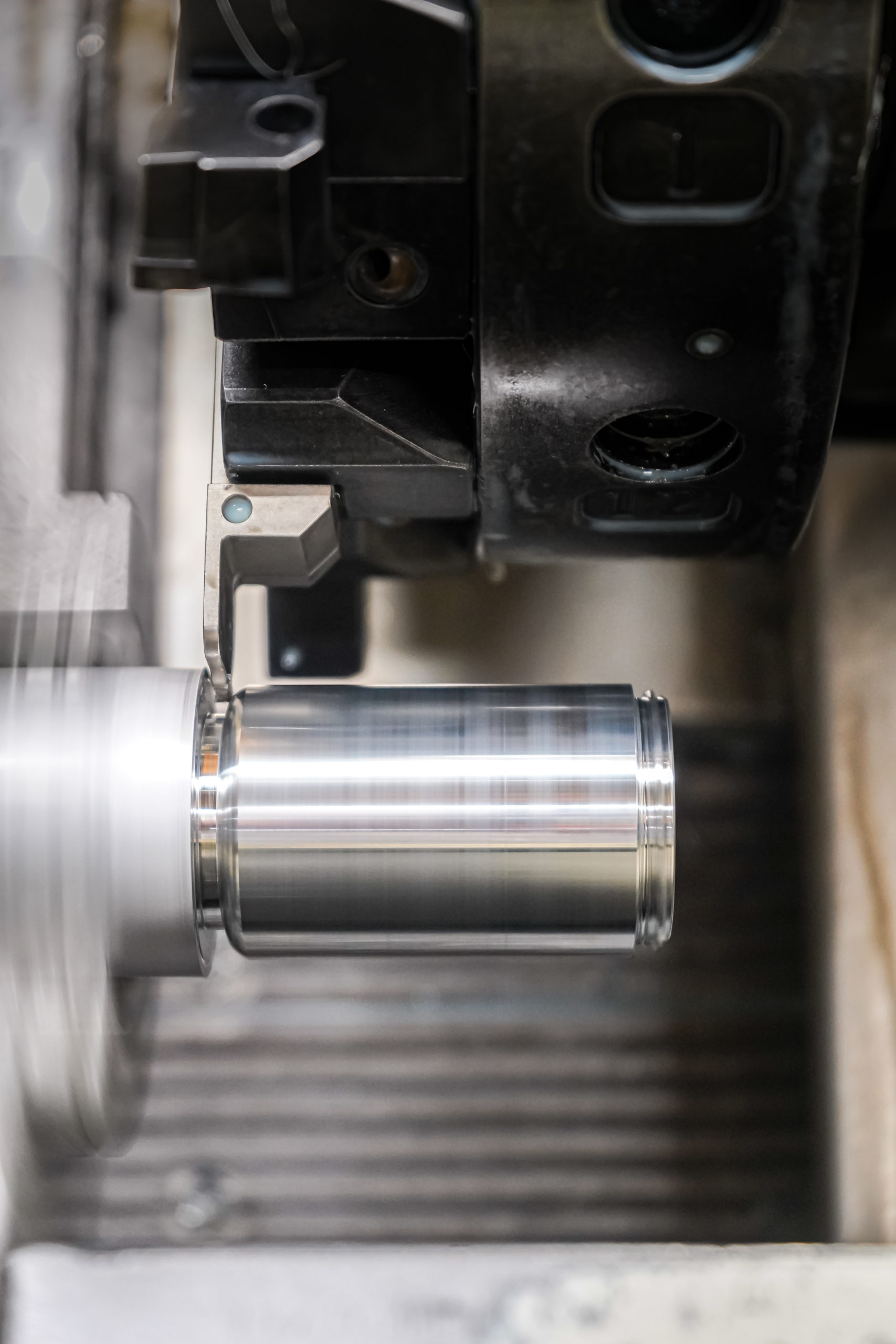
METALWORK
With the intent of making the case last for as long as possible, and infinitely recyclable if needed, we knew the case had to be made of aluminium. Perhaps one of the most recyclable materials on earth, aluminium not only provided us with a long lasting product, but one that could be recycled at the end of its life back into another aluminium product of the same quality. Unlike plastics that if recyclable are degraded in the recycling process (Ie. plastic bottles often get turned into packaging). Over 75% of all aluminium ever produced is still in use due to its perpetual recycling attributes, unlike plastics where only 9% has ever been recycled (Alumeco, 2021).
The metal work was done by a local family owned and run engineering shop just a few kilometers down the road from the Margate Making Space. With all 3 components being machined in-house and under the same roof with all offcuts being recycled. Being in such close proximity to the workshop allowed us to work in tandem with the engineers whilst also fostering a valuable local relationship for future projects.
ANODISING
For the colouring of the cases, we decided on the same process that is used to protect satellites from their harsh outer space environments, anodising. For the simple reason that it stabilises and seals the aluminium, increasing its lifespan, thus allowing the case to be used for longer as well as being the most environmentally conscious choice. Anodising, unlike almost all metal treatments, produces no hazardous waste, is water based, and uses no VOC’s (volatile organic compounds)(Greenspec, 2021). Powder coating the cases was the alternative option, though by comparison to anodising, powder coating reduces the recyclability of the aluminium and is also prone to chipping, ultimately reducing the lifespan of the product. Luckily, we’re also huge fans of the aesthetic qualities of the anodising process as well!
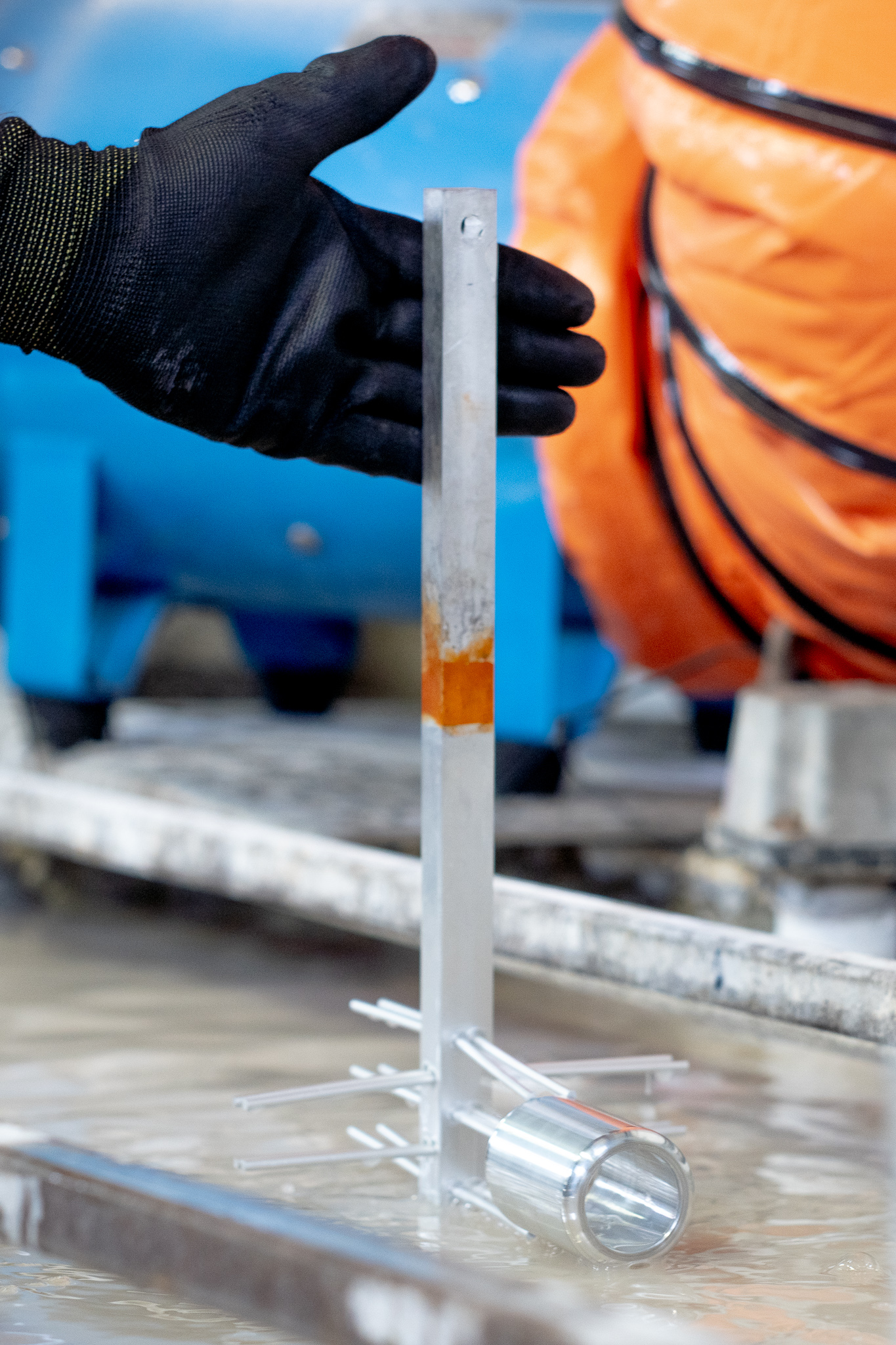
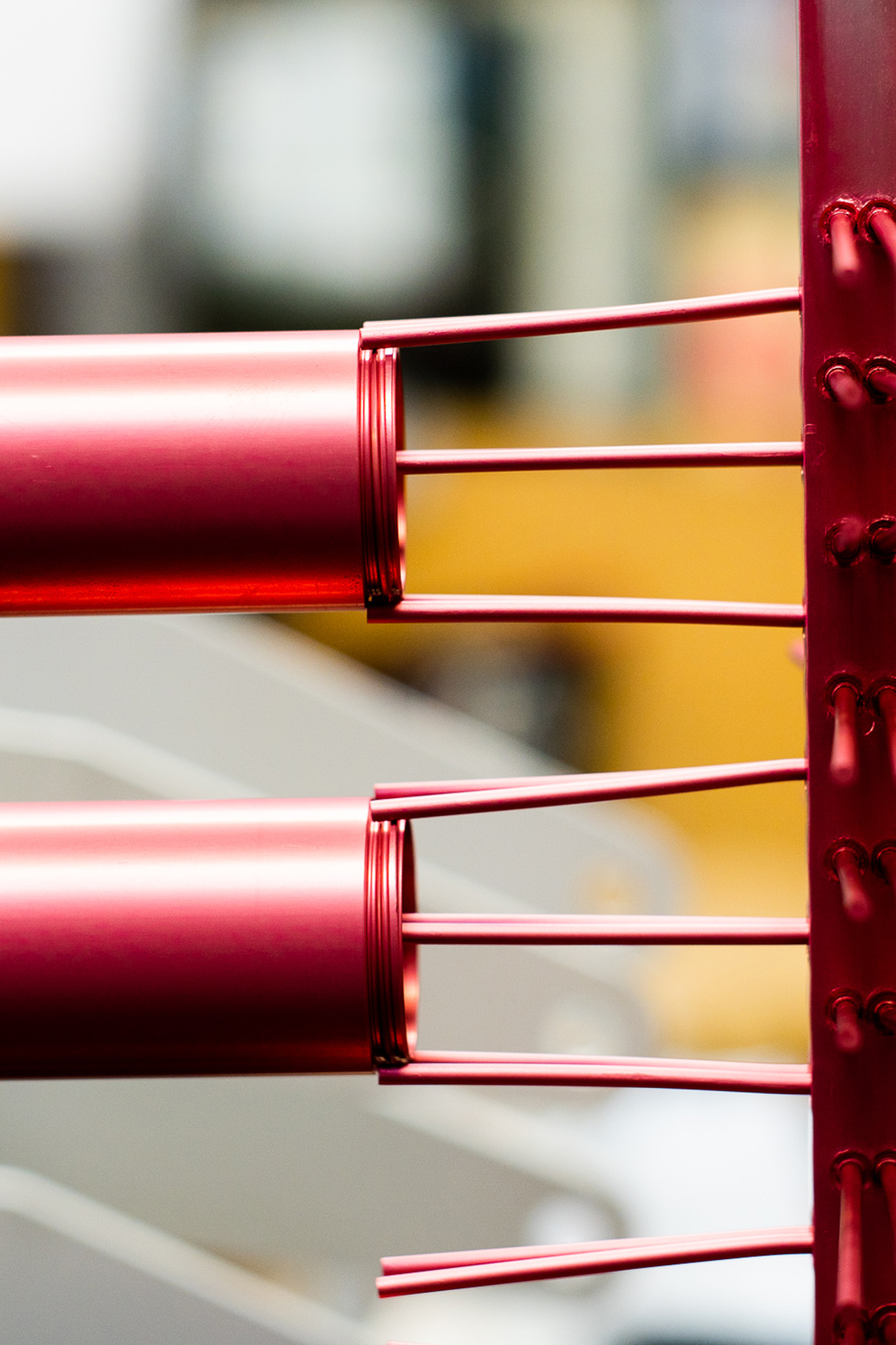
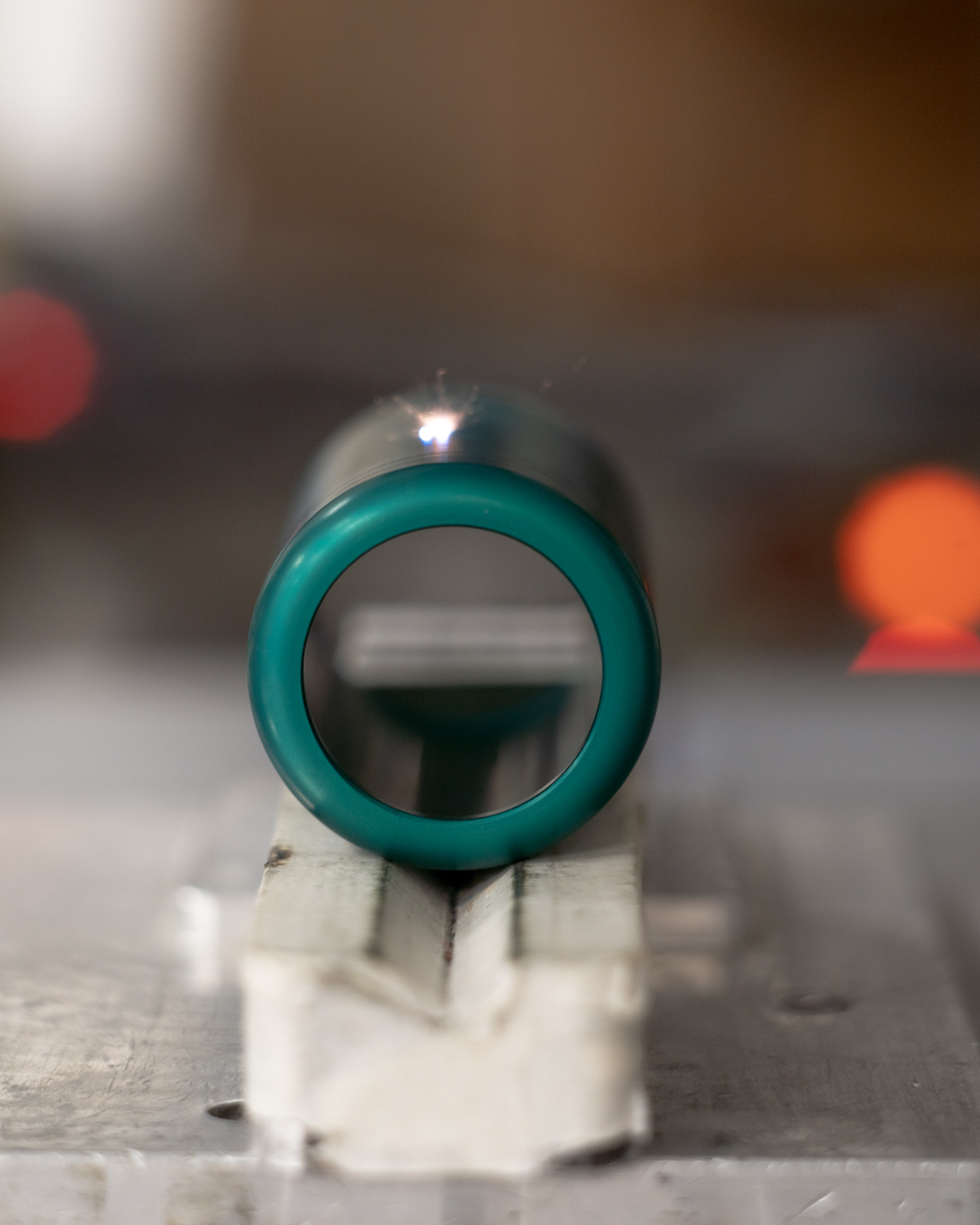
ENGRAVING
Laser engraving was by far the best option for finishing and branding the cases, and provided us the quickest, and most effective method. It takes all of 13 seconds for the laser to engrave the case, and surprisingly little energy. The process is devoid of any inks, many of which are often harmful to local water systems. By not using any of these extra materials it also allows for safer and easier recycling. The final outcome is a small logo which highlights the origin of the case by showing the bare aluminium that the whole product is made from.
A metal case allows the product to be used indefinitely. By having a hardwearing material, the Shell can be refilled over and over again. It also is multipurpose, as it can house a variety of different products, some of which will be launching soon.
The three simple components of the casing also means that if one were to break then it can be easily replaced without the need for a whole new product. Then the original broken piece can be given back to us to be recycled. But if you did decide that you no longer wanted the case then you could bring it back to use where we would be able to recycle it, repair it or turn it into a new product.
We use cookies on our website to give you the most relevant experience by remembering your preferences and repeat visits. By clicking “Accept All”, you consent to the use of ALL the cookies. However, you may visit "Cookie Settings" to provide a controlled consent.Manage consentPrivacy Overview
This website uses cookies to improve your experience while you navigate through the website. Out of these, the cookies that are categorized as necessary are stored on your browser as they are essential for the working of basic functionalities of the website. We also use third-party cookies that help us analyze and understand how you use this website. These cookies will be stored in your browser only with your consent. You also have the option to opt-out of these cookies. But opting out of some of these cookies may affect your browsing experience.Necessary cookies are absolutely essential for the website to function properly. These cookies ensure basic functionalities and security features of the website, anonymously.Cookie Duration Description cookielawinfo-checkbox-analytics 11 months This cookie is set by GDPR Cookie Consent plugin. The cookie is used to store the user consent for the cookies in the category "Analytics". cookielawinfo-checkbox-functional 11 months The cookie is set by GDPR cookie consent to record the user consent for the cookies in the category "Functional". cookielawinfo-checkbox-necessary 11 months This cookie is set by GDPR Cookie Consent plugin. The cookies is used to store the user consent for the cookies in the category "Necessary". cookielawinfo-checkbox-others 11 months This cookie is set by GDPR Cookie Consent plugin. The cookie is used to store the user consent for the cookies in the category "Other. cookielawinfo-checkbox-performance 11 months This cookie is set by GDPR Cookie Consent plugin. The cookie is used to store the user consent for the cookies in the category "Performance". viewed_cookie_policy 11 months The cookie is set by the GDPR Cookie Consent plugin and is used to store whether or not user has consented to the use of cookies. It does not store any personal data. Functional cookies help to perform certain functionalities like sharing the content of the website on social media platforms, collect feedbacks, and other third-party features.Performance cookies are used to understand and analyze the key performance indexes of the website which helps in delivering a better user experience for the visitors.Analytical cookies are used to understand how visitors interact with the website. These cookies help provide information on metrics the number of visitors, bounce rate, traffic source, etc.Advertisement cookies are used to provide visitors with relevant ads and marketing campaigns. These cookies track visitors across websites and collect information to provide customized ads.Other uncategorized cookies are those that are being analyzed and have not been classified into a category as yet.Free UK shipping via Royal Mail when you spend over £65 - Body + Hand























